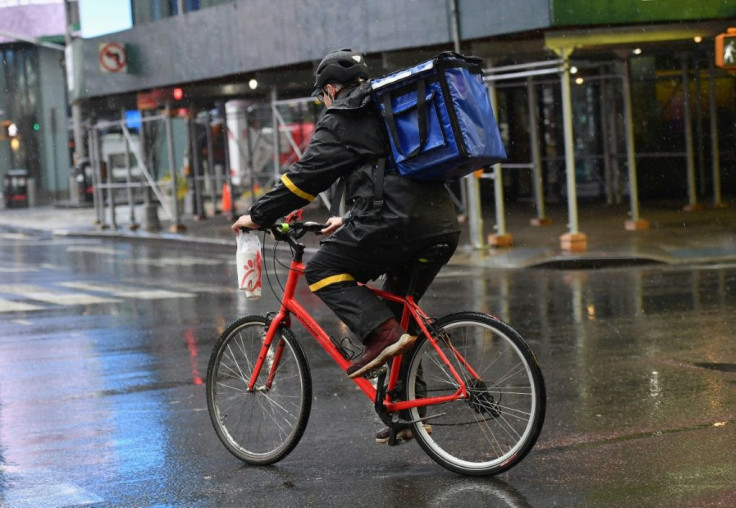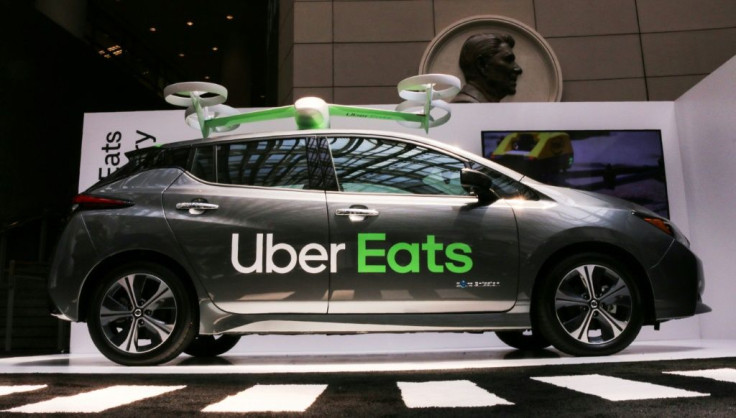In Houston, Restaurant Staff Face Unemployment -- Or Risky Gigs

Until last week, Ashlyne Collins worked as a bartender at a restaurant in Houston. But the coronavirus epidemic has shut the place down and the 22-year-old is out of work.
Of course, like millions of Americans, Collins still needs to work so she can pay her monthly rent of $1,800. And her boyfriend was also laid off.
Her options are limited: the best seems to be delivering takeout or stocking shelves in a supermarket -- in full knowledge that she may be putting her health at risk.
"I'm probably going to have to leave my apartment and sell my truck or something," Collins told AFP. "I don't know... my parents have offered for us to move in with them."
The sweeping measures in place across large swathes of the United States to curb the spread of the deadly novel coronavirus have put many Americans on the back foot.
Small businesses like the restaurant where Collins worked have closed their doors -- and could end up not reopening at all if the two-week shutdown now in place is extended.
Collins says she has applied for unemployment benefits, but the $1,000 a month she could receive is about a third of her usual salary, which relies heavily on tips.

Major US companies such as Walmart and Kroger are hiring people in droves, especially those who can restock shelves overnight, after panicked shoppers load up during the day.
But Collins is worried about her health.
"I think it's dangerous -- I understand they're offering people jobs but you're coming within two inches of another person and you don't know if they have it or not," she said.
"There's no hazard pay."

Nevertheless, Collins applied at a few places in Houston, the most populous city in Texas with more than 2.3 million people, but she figures her application will get lost in the shuffle.
For her, food delivery services such as Uber Eats and DoorDash -- with their near-instant online application processes -- seemed more doable, even if it seems "really risky" to be in contact with customers.
Jessica Kunzat is in the same situation. The 23-year-old university student was laid off last week from her part-time job as a waitress at a seafood restaurant, which she started at age 16.
For Kunzat, who is studying mechanical engineering, Uber Eats and the like are a workable solution in the short term -- as long as restaurants are allowed to continue offering meals for delivery.
Her employer, Floyd's Cajun Seafood, did promise to rehire everyone when the restaurant reopens but "nobody knows when that will happen," Kunzat said.
For now, she is keeping her second job, as a reporter for student media at the University of Houston.
The campus is shut down, and classes are being held online, which could affect that work in the coming weeks.
"To be in this worldwide crisis and then lose your job in the middle of it, it makes you feel very insecure," Kunzat said.
As of Monday evening, Texas had more than 400 confirmed coronavirus cases, according to state health authorities. About half of those are in the greater Houston area.
So far, Governor Greg Abbott has not instituted a statewide stay-at-home order, like his counterparts in New York, California or Illinois, leaving it up to local officials.
Dallas has shuttered all non-essential businesses. In Houston, schools, bars and clubs are closed, and gatherings of more than 10 people are forbidden, but residents are not ordered to stay home -- so far.
"It's scary to see how many people are still out and about," said Kunzat. "I feel like I wouldn't be as concerned if more people were practicing caution, but they're not."
© Copyright AFP {{Year}}. All rights reserved.





















